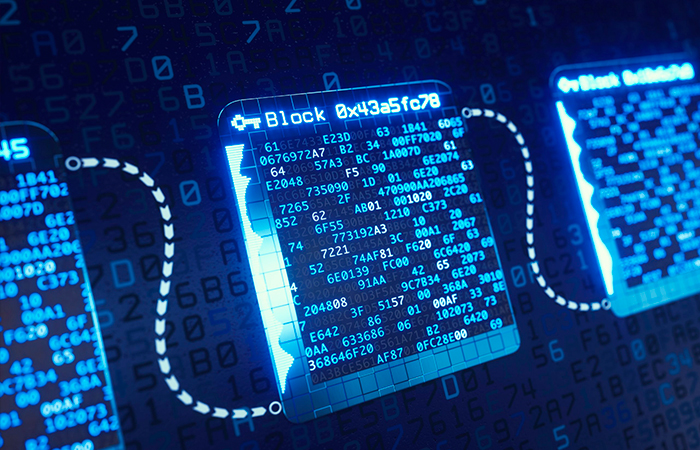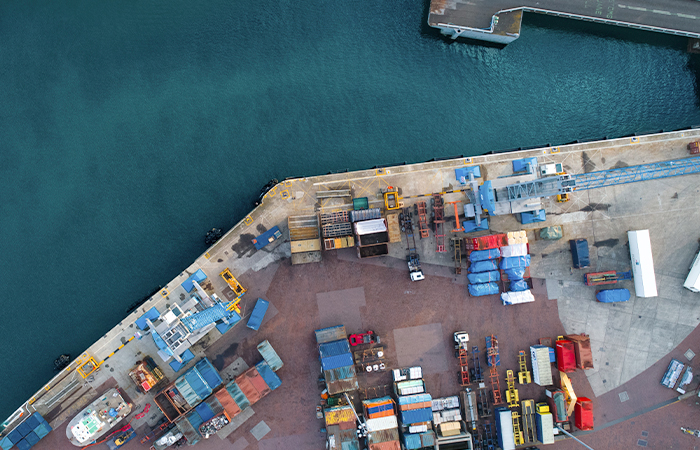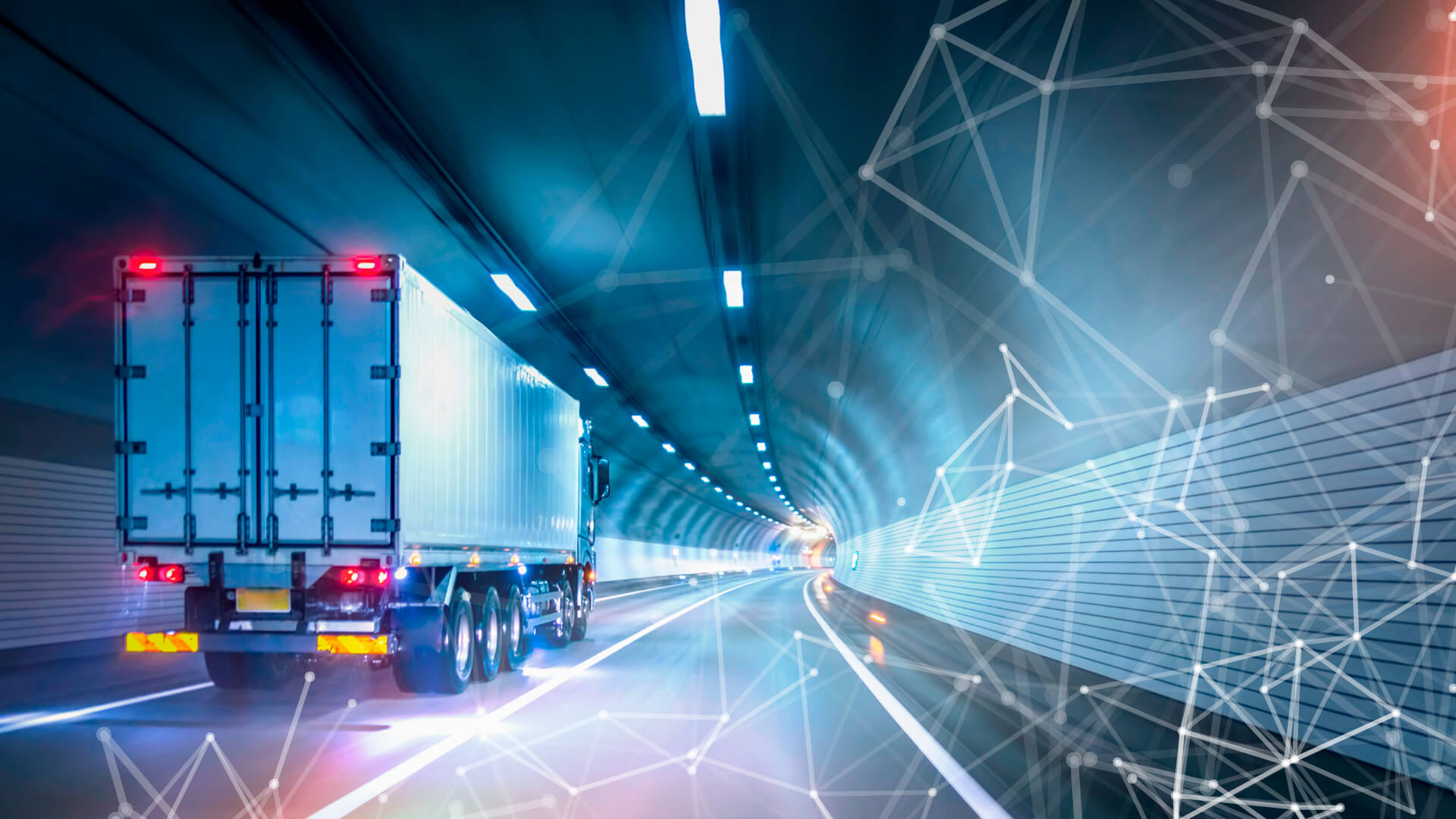Blockchain: The future of Logistics and Supply Chain Management.
In 2020 the Global Logistics market was valued at almost £6.5 trillion.
As the industry continue to grow at pace, it is becoming more and more demanding, therefore creating greater challenges for all companies operating in the supply chain. Stakeholders need to be agile and adapt to the re-shaped marketplace proactively.

One of the main challenges that key players in the sector face are increased flows of information within the supply chain, lack of speed and efficiency of the deliveries, poor inventory tracking and the discrepancies regarding the payment and invoicing.
With the expansion of the industry, the supply chain grows with it, and accordingly more and more parties become involved in it. Therefore, trust and collaboration are among the key enablers for more efficient and effective operations. However, sharing data between the different stakeholders presents an issue for all parts in the supply chain and here is where Blockchain has a significant role to play.
1. What is Blockchain?

When saying Blockchain the first thoughts that normally come to mind are Bitcoin, crypto, hi-tech and so on…
Now you may ask yourselves the question ¨How can Blockchain contribute to improving the global logistics operation? ¨. The answer is very simple, and it consists of four words which are ´´Decentralized Digital Ledger System´´.
Blockchain is a mechanism that gives access to numerous parties, involved in the logistics process, to a shared database where they can exchange information, send documentation (such as SMART contracts, consignment notes, ECMRs), share delivery status updates, perform payments and transactions etc. Overall, Blockchain creates a trusted environment between the key players and thus, reduces the percentage of inefficiencies and disruptions in the supply chain.
2. Key Characteristics of Blockchain
- Distributed: The data and documentation shared within the system are evenly distributed to all parties having access to it. Thus, a single truthful source is created and that eliminates the need of a validation by an authority.
- Encrypted: All transactions, data sharing, or processes made within the blockchain environment are encrypted with a specific code that records the date and time (and in some cases the geo location data) of the performed action. Hence, all parties can be reassured that information within the system is unaltered.
- Consensus- Based: All transactions executed must be approved and validated by all participants. Therefore, one of the features of Blockchain that enhances the trust between the different key players involved in the process is it´s consensus-based nature.
- Smart Contracts: Smart Contracts are programs operated by the blockchain system when all pre-established conditions are met. They execute processes such as payments, ownership transfers etc. Accordingly, these programs don´t require any intermediary involvement and thus, contribute significantly to the automatization of the process and reduction of time.
3. Benefits of Blockchain´s adoption in Logistics

Once implemented within the logistics process, the blockchain technology can bring many advantages for the different parties involved but the ones that stand out the most are:
- Supply Chain Transparency and Traceability: Due to the lack of trust-worthy information many firms involved in the logistics process tend to pay excessively for the delivery of their stock. With the adoption of blockchain the forgery of documentation can drop drastically as all data is integrated within the blockchain environment and thus, allows each party to follow the status of different transport modes in real-time. What is more, it provides reliable information regarding past operations.
- Inventory and Cargo Tracking: As there are many participants in the supply chain, each one using their own system and therefore, the connectivity between the different systems is conducted through emails, meetings, posts etc. Using these conventional methods creates a wide variety of problems such as cargo theft, inaccuracies, lost data, time- wasting etc. The way for Blockchain to ease the process and cope with the issues is by giving access to all stakeholders in the supply chain to a shared digital document management system where they can follow the location of their cargo and inventory 24/7.
- Provenance Validation and Quality Assurance: During the transportation process product damages, food spoilage etc. are an inevitability. With Blockchain the origin of items could be traced to a specific producer, thereby providing a trustworthy proof-of-origin. Furthermore, the technology assures the compliance with all standards as it can detect a breach of transportation conditions and the party accountable for it, an infected product, and its source which in turn essentially helps with dispute resolution in a more efficient way.
- Improved Operational Efficiencies: Since exchange of different documents, payments execution, tariffs settlement, transfer of ownership etc. are performed by employees’, issues such as clerical errors, time consumption and fraud take place within the supply chain. The solution to it are the SMART CONTRACTS as they can overtake all these functions and thus, improve the workflow and business processes.
4. Implementation Challenges
- Interoperability and Integration: As the different parties within the supply chain use various systems, integration issues could arise due to the inability to connect them and to install blockchain within the internal software of each company.
- Awareness: Blockchain Technology is relatively new in the sector of logistics, and this is the reason why there is a lack of awareness of its benefits among part of the key players and that creates reluctance to its adoption by the other parties as well. Moreover, having skilled individuals is essential for blockchain´s implementation and there is currently skills shortage in this sector, meaning development costs tend to be very high.
- Regulation and compliance: Since no clear legal framework exists to regulate all transactions done through the blockchain system, most companies are doubting the security of the process and are becoming unwilling to perform transactions or share any valuable information with other third parties within the blockchain environment.
- Cost Barrier: Applying new technology to an already existing database involves all different type of costs such as integration costs, maintenance costs etc. Every time a smart contract or any type of transaction is performed, there are various fees included. Therefore, making an investment in the adoption of Blockchain Technology is inevitable, as well as the cost consideration that companies make when evaluating the option.
5. Becoming part of the Global Supply Chain Movement

The Logistics and Supply Chain industry is facing one of its most challenging questions which is whether it is worth embracing the changes that Blockchain would bring into the sector. To take that decision each company needs to consider if its processes could benefit significantly from this technology and if there is an actual need for it to be implemented or it is rather just a want, more than a need.
As mentioned already, the technology offers many advantages and could tackle many of the current issues that parties within the supply chain are confronting. However, there are still some uncertainties and difficulties related to its implementation that cannot be neglected.
Every adoption process is slow and requires time and effort. Since Maersk, FedEx, IBM Food Trust, UPS, and other market leaders have already implemented Blockchain with the goal to improve logistics…. will the rest follow?
Thus, the more companies that embrace the challenge, the clearer the success of Blockchain in logistics will become during the coming years.




